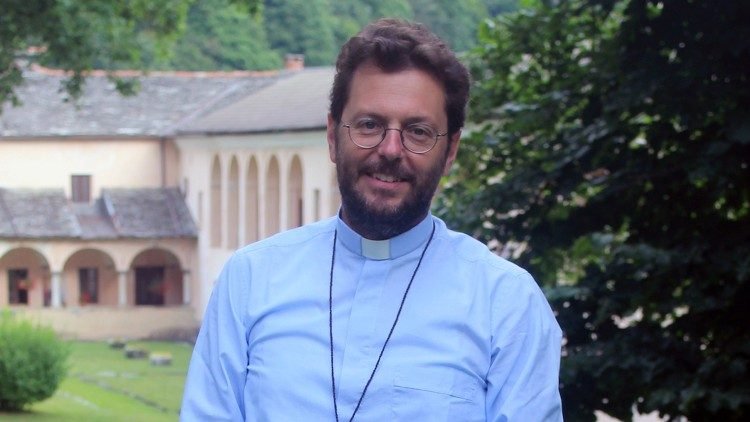While in Kazakhstan for Pope Francis’ visit, Mongolia’s Cardinal Giorgio Marengo discusses with Vatican News the importance of the Pope’s visit to the Central Asian nation, saying it will draw attention to the world’s conflicts, while working toward concrete change and long-awaited peace.
By Deborah Castellano Lubov – Nur-Sultan
Mongolia’s Cardinal Giorgio Marengo, the Prefect of Ulaanbaatar, is convinced that Pope Francis’ visit to Kazakhstan marks a significant step forward in the task of dialogue and reconciliation, as the world battles crises and war.
In an interview with Vatican News in Kazakhstan, the first-ever Cardinal of the Central Asian nation, now the youngest member of the College of Cardinals, shares his insight about the Pope’s 38th Apostolic Journey abroad.
He notes that it comes amid continuing war in Ukraine, saying the papal visit has the power to not only draw widespread attention, but to bring about concrete change.
Q: Your Eminence, would you say that it is fair to consider the Holy Father’s visit, a missionary trip, in a sense?
Definitely, yes. We like to see this Apostolic Journey as a missionary journey, which confirms the attitude of Pope Francis to be a true missionary of the good news.
His Apostolic Journey to Kazakhstan means a lot to all of us because we belong to the same Episcopal conference, and we are sure that it will also foster the ties of peace and reconciliation in the whole region.
Listen to our interview with Cardinal Giorgio Marengo of Mongolia:
Q: The Holy Father’s participation in the 7th Congress of Leaders of World and Traditional Religions is one of the main reasons why he is here. From your experience in Central Asia, how would you say that this trip and the Pope’s presence has the power to promote peace and dialogue, also as war continues nearby?
I strongly believe that the presence of the Holy Father represents a step forward in this process of dialogue and reconciliation. Considering the great reputation that the Holy Father has, his participation in the seventh Congress marks a special moment in this process.
And even from Mongolia, his participation is seen as a great honor. In Mongolia, the Holy Father enjoys a lot of admiration because of his commitment to dialogue and promoting culture of peace and fraternity.
Q: From your experience in Central Asia and with interreligious dialogue, is there some barrier you personally think needs to be overcome? Is there something you feel is needed?
I would say that this region of the world has a history, a tradition of coexistence and peaceful collaboration. Perhaps the presence of the Holy Father will represent a kind of increase in the importance of this process, even in the society, the larger society of these countries.
When a world leader like the Holy Father participates in such a meeting, it means that the attention of the public is also drawn there. And so, I would say the presence of the Holy Father will help this process to become more concrete and more widely known.



